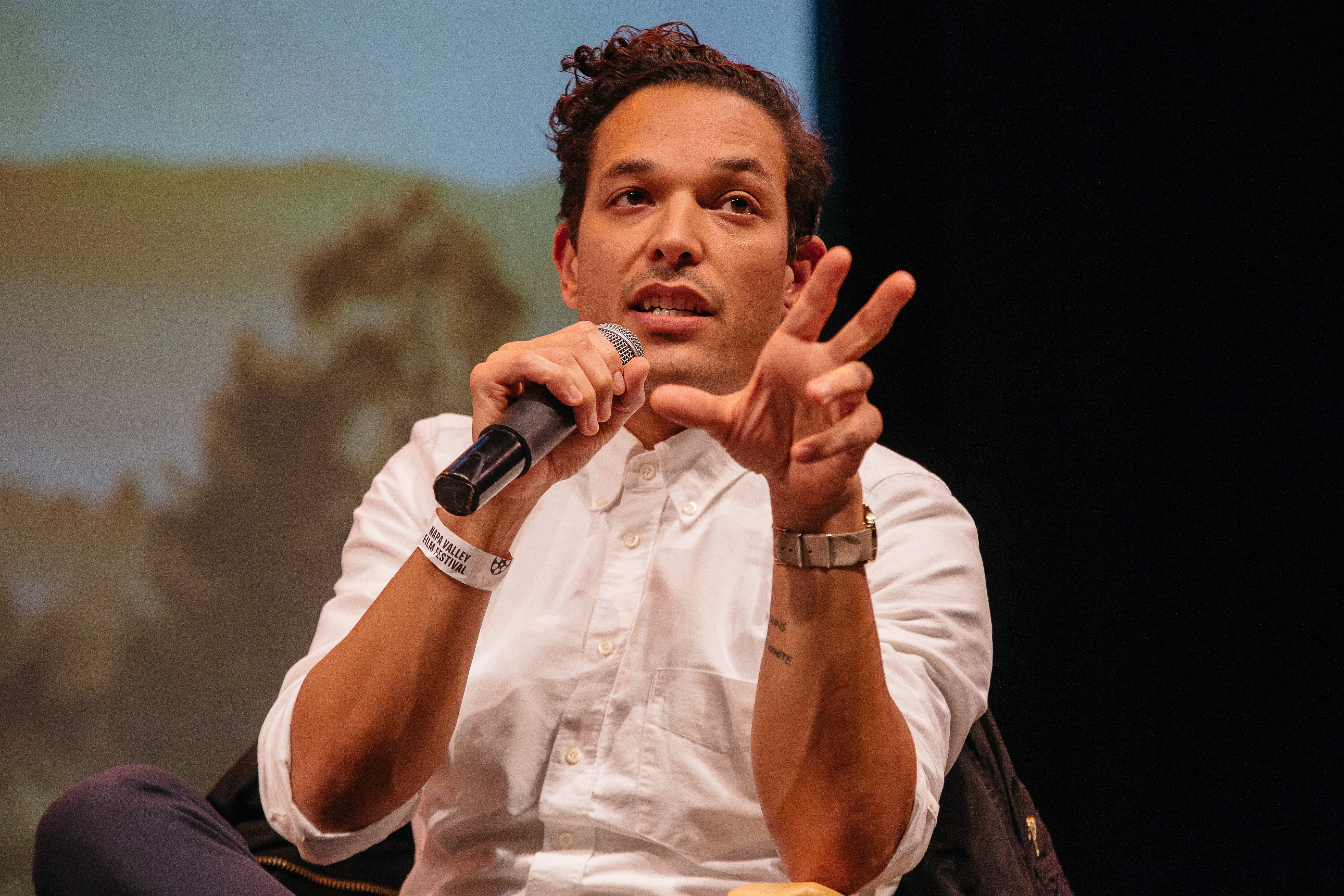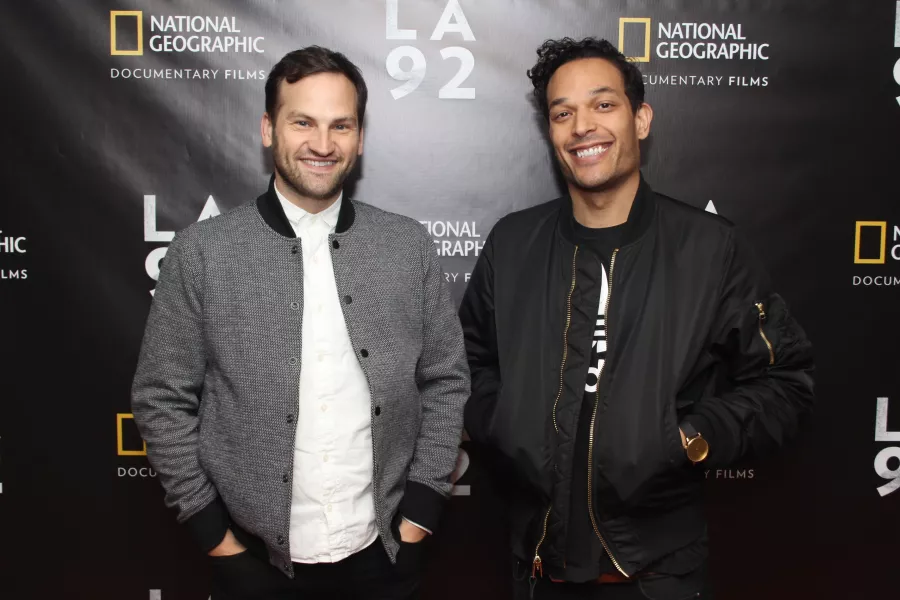Documentary filmmaker TJ Martin, ’05, has a dozen projects cooking—some just glimmers of ideas and others backed by multi-million-dollar budgets—but they all have something in common.
A playlist.
Now that he’s won an Oscar and an Emmy, Martin says some of his friends think he must be living the glamorous Hollywood life. But between the premieres and the location shoots, Martin is still a guy who works every day to make a living along with a creative life.
As each idea starts to become real, Martin carefully selects songs to reflect the mood and tone he’s trying to evoke in his films. “It’s crucial to the creative process,” Martin says. “I’ll curate extensive playlists for whatever project I’m working on. I get in that headspace and listen to it over and over again.”
Martin’s current playlist-in-progress: Tina Turner. He and production partner Dan Lindsay are producing the first full-length feature documentary about the iconic singer.
In addition to music and other creative inspiration, Martin, who graduated with a Fairhaven interdisciplinary concentration and a major in American Cultural Studies, is constantly on the hunt for compelling stories to bring to the screen. His first big film with Lindsay was “Undefeated,” about an underdog high school football team, which won the 2012 Academy Award for feature-length documentaries.
Then last year, he and Lindsay directed “LA92,” a documentary treatment of the 1992 Los Angeles riots that won an Emmy award. Lindsay and Martin chose to tell the 25-year-old story through archival footage rather than people’s recollections in interviews.
“We were inviting people from different political leanings, different ideologies, to go through this emotional experience,” he says. “Hopefully, they’re going through the experience with a lens of empathy and emotion rather than, ‘Who’s right and who’s wrong.’”
Martin is drawn to projects that ask big questions about race, gender and class inequality—and he wants audiences to ask those questions, too.
“But people don’t want to acknowledge their own biases within those dynamics—to the point where people feel they have to guard themselves,” he says. “It’s about doing it with sophistication and not dumbing down to your audience, but allowing people to recognize these issues are complicated, and they deserve some sort of nuanced, deeper thinking.”
Martin himself grew up looking for nuanced reflections of his own story. The son of two musicians who sometimes lived paycheck to paycheck, his family wasn’t viewed by society as traditional or wholesome. And as a mixed race kid, he felt even more left out of what he saw on screen.
“I still have to force myself to be on my own journey and not figure out who I am as a result of what someone else thinks of me—what the media thinks of me,” he says. “It’s still hard for people to wrap their heads around the idea of embodying multiple identities, and multiple ways of thinking and being. I find myself being very attracted not just to good storytelling, but to the nuance and messiness of it all.”
Even some of Lindsay and Martin’s more commercial projects—their literal commercials—have their social imprint. Their 2014 “This is Wholesome” campaign for HoneyMaid profiled a series of families with parents who are gay, interracial, and, possibly not coincidentally, a dad who’s a rock musician—all depicted as traditional, loving families.
Their most recent commercials may be among their most widely seen work. Martin and Lindsay spent several weeks on the road for Comcast filming four Olympic athletes starting their journeys to the Winter Olympics in South Korea. Another commercial depicted people in Afton, Minnesota, crowding into a diner in the middle of the night to watch fellow resident and cross-country skier Jessie Diggins win an Olympic gold medal.
By telling the stories of athletes, musicians, people in the news and people on the margins, perhaps Martin is working his way back to telling the stories closer to his own life, the ones he longed to see when he was a kid.
But there’s one project he’s not yet ready to pitch, about another Tina. His mom, Tina Bell, grew up learning to sing in black churches, then had a career fronting Bam Bam, a punk-proto-grunge band in Seattle in the 1980s and ‘90s. People still talk about the musicians who played with Bam Bam and went on to make it big—and about the power of Tina Bell’s voice.
Martin admits to being a little intimidated by the responsibility of telling a story so close to his heart. But when that play-list comes together, maybe he’ll know the time is right.

